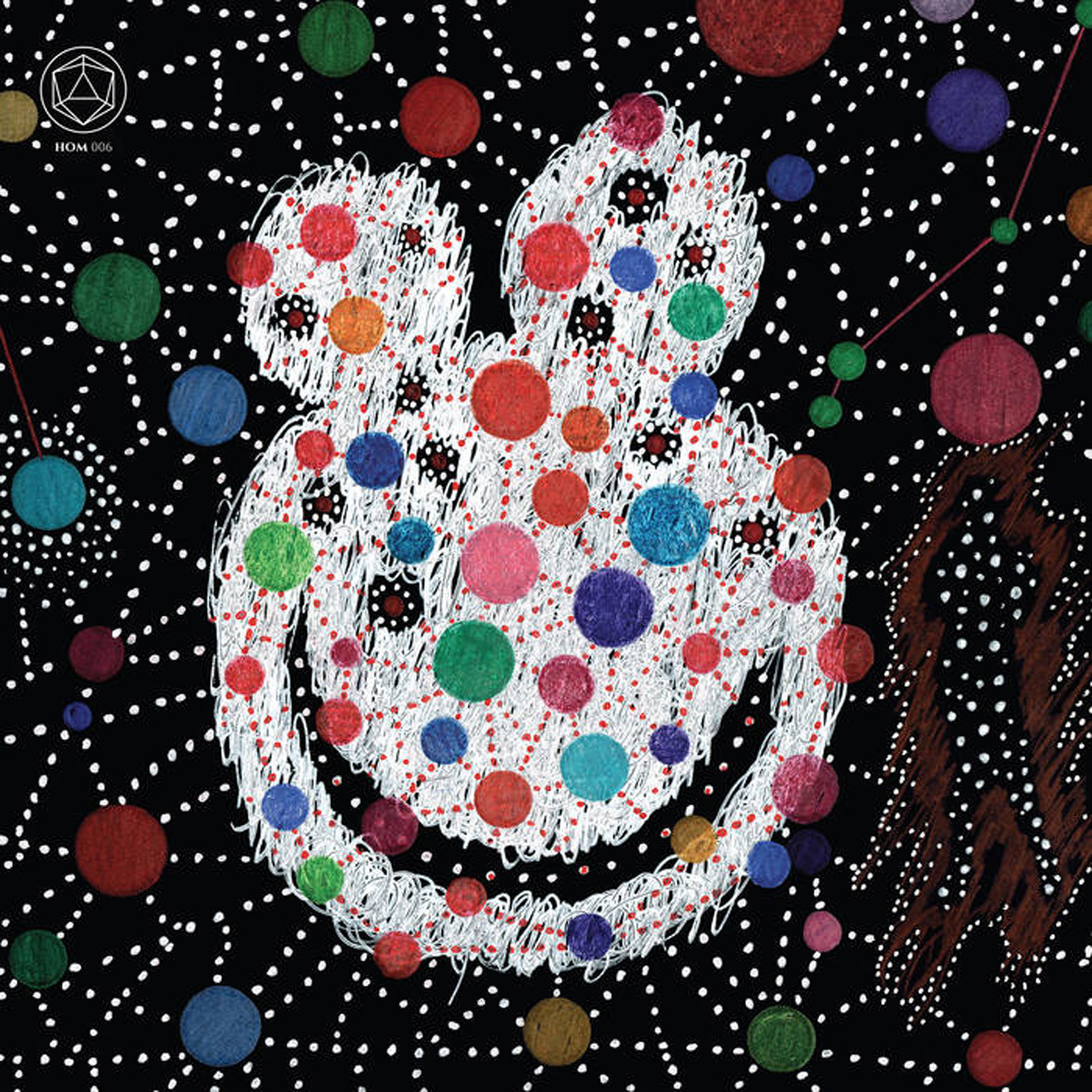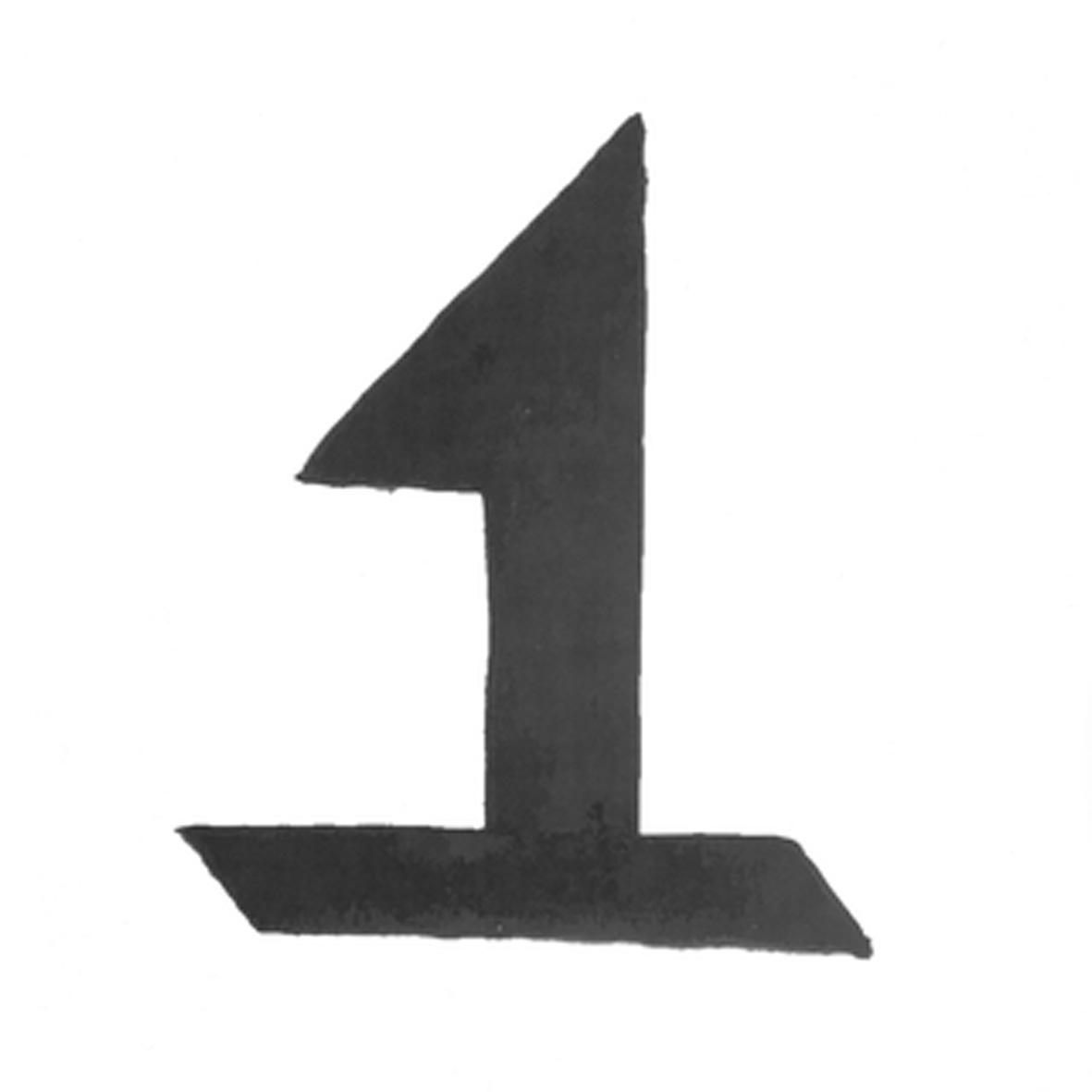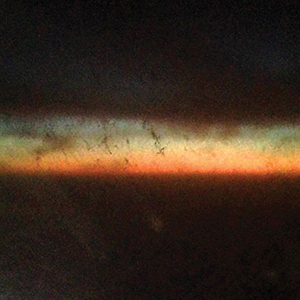- Administrator
- Albums and Singles
 Some of Jason Anthony Harris' previous recordings as Public Speaking have flirted with more traditional song-like material, but would just as often end up being more in line abstract and chaotic world of noise. For this newest album, however, it seems as if he has settled more comfortably into the role of songwriter, and here, across these seven pieces, he creates a dark, at times very disturbing world presented as off-kilter, bizarre electronic pop.
Some of Jason Anthony Harris' previous recordings as Public Speaking have flirted with more traditional song-like material, but would just as often end up being more in line abstract and chaotic world of noise. For this newest album, however, it seems as if he has settled more comfortably into the role of songwriter, and here, across these seven pieces, he creates a dark, at times very disturbing world presented as off-kilter, bizarre electronic pop.
The most recent release I heard from Harris was last year’s Mountainmurals tape:a well executed release of found sound tape collages, so the rhythmic throb and clean vocals of opener "Blacksite Blues" were a drastic departure, though not far removed from the 2013 Blanton Ravine record.It is the perfect start to the album, with clattering noises, synthesizer, and saxophone (by Johnny Butler) melded into an insistent blues throb.Harris’ vocals are croon-heavy and appropriately dramatic, shifting between notes effortlessly as the backing track bludgeons.Only during a jolting, unexpected delicate breakdown passage does the hammering cease, but when it comes back it is all the heavier.
"I Turn Over His Body" is another more rhythmically focused piece, this time a pastiche of programmed militaristic snares and more conventional saxophone leads.Compared to "Blacksite Blues," the instrumentation and musical structure is more varied and dynamic, while Harris’ vocal performance is more restrained and muted.The album closing title song is another one where he puts the beat first, via a steady thumping rhythm and strange, far off guitar from Zach Ryalls.With the voice processing bending the lyrics largely indecipherable, the focus is the beat and effects.
Where Caress, Redact shines the most is Harris' narrative lyrical content being juxtaposed with drastically different musical accompaniment, making for a stark and fascinating contrast.The twinkling electronics and up-beat tempo of "Protect Me From My Own Paws" have a light, electronic pop sensibility to them, but with lyrics about immolation being delivered so smoothly, the pairing is unsettling.The understated, electronic tinged piano ballad "Shifting Weight" may superficially come across like an experimental R&B song, but the lyrics from an abusive father’s perspective, tossing out homophobic slurs about his son, is something much darker.
This sensibility is continued on "Processed By The Pound," at first by means of rave synth stabs and bent electronics, it eventually comes together with a dark, rhythmic structure and sputtering tremolo effects.With its lyrics covering spousal rape, domestic violence, murder, and body disposal via meat processing, I could not help but draw some parallels to the lyrical content of a big portion of Big Black's discography, though Harris’ presentation is more of a sympathetic, introspective one compared to Steve Albini's over-the-top shock tactic style.
Caress, Redact is not only an excellent work on its own merits, but it also excels because it sounds so little like no one (or nothing) else.The songs are all rich in composition but intentionally fragmented and disjointed in their production, channeling the familiar and the alien perfectly.When this is mixed with Harris' strong lyrics and powerful vocals, the combination is compelling and fascinating and stands out exceptionally among this year's best records.
samples:
 
Read More
- Administrator
- Albums and Singles
 This collaboration between David Tibet and early Current 93 alum and erstwhile Killing Joke bassist Youth is quite a fascinating, bizarre, improbable, and intermittently perplexing release.  Given how little attention I pay to mainstream music, I had completely forgotten that Youth also has an ongoing project with Paul McCartney (The Fireman) and a long history of production and remix credits involving artists like U2, Depeche Mode, Erasure, and almost Duran Duran.  In short, he is primarily an ingenious chameleon whose greatest gift lies in adapting to new situations, figuring out how to make the most of them, and egolessly fading into the background.  That is exactly what he has (mostly) done with Create Christ, Sailor Boy: consciously opting to be as invisible as possible.  As such, this album is primarily a showcase for David Tibet's snarling and singular poetic rantings presented on an epic scale, some of which rank among his best.
This collaboration between David Tibet and early Current 93 alum and erstwhile Killing Joke bassist Youth is quite a fascinating, bizarre, improbable, and intermittently perplexing release.  Given how little attention I pay to mainstream music, I had completely forgotten that Youth also has an ongoing project with Paul McCartney (The Fireman) and a long history of production and remix credits involving artists like U2, Depeche Mode, Erasure, and almost Duran Duran.  In short, he is primarily an ingenious chameleon whose greatest gift lies in adapting to new situations, figuring out how to make the most of them, and egolessly fading into the background.  That is exactly what he has (mostly) done with Create Christ, Sailor Boy: consciously opting to be as invisible as possible.  As such, this album is primarily a showcase for David Tibet's snarling and singular poetic rantings presented on an epic scale, some of which rank among his best.
Throughout its many incarnations, Current 93 has always been a reliably eccentric and aberrant project, both musically and lyrically.  Consequently, the most immediately striking aspect of Create Christ is the straightforward simplicity of Youth’s synthesizer arrangement on the opening "Your Eyes in the Skittle Hills." In one respect, it feels somewhat anonymous when compared to David Tibet's usual fare, but the lush neo-classical grandeur nevertheless suits Tibet's wild-eyed proclamations quite beautifully.  If Tibet has composed an epic, impassioned, and otherworldly tale, it makes sense that it should have a suitably epic-sounding backdrop.  It is no small feat to wield dynamics so effectively that lines like "You and moonbeams walking through the walls" or "In the dead forest, your lips like planet cream" can seem incredibly heavy and deeply profound.  Also, it definitely seems like Tibet found his new sonic environs quite inspiring, as he does a lot more actual singing than usual, surprising me with lots of sustained notes and frequently straining into the upper end of his range.  He is also quite throaty throughout Sailor Boy, escalating the intensity of significant moments with an impressive battery of growls and howls.  In fact, the album actually feels like a bizarre religious experience at times, unpredictably and seamlessly veering from sublime chant-like beauty to demonic snarling ("you groovy girls with teeth!") within the same song.
Youth's decision to hang in the background "so you only hear the stories" means that Create Christ is a lot like being harangued by a half-mad prophet who just emerged from a few decades (or centuries) of seclusion in the desert: the breathless torrent of words is a bewildering mixture of striking poetry, arcane wisdom, cryptic jokes, puzzling allusions, beautiful imagery, and personal obsessions.  I mean that in the best way possible, of course.  Skittles, the stars, cats, penguins, Christ, Archie comics, ghosts, dead languages, flowers, the moon, and Pinocchio all seem to hold a place of honor within Tibet's hermetic personal mythology and all seem importantly intertwined.  I have long believed Tibet to be one of most brilliant and fascinating artists around, but his vision is a unquestionably uniquely personal one.  The gulf between his world and mine is quite substantial, so the trick is always to harness and present the phantasmagoric fever dream of his words into something more universally meaningful.  When that fails, Hypnopazüzu merely sounds like distinctive free-associative poetry that presents an enigmatic and beautifully worded puzzle of associations.  That is fine, obviously, but it is an intellectual pleasure rather than a visceral one.  When the trick works, as it does on pieces like "Skittle Hills" and "Christmas with the Channelers," it can be absolutely revelatory.  Words are Tibet’s unquestionably primary weapon of choice, but the meaning and power of these pieces can greatly transcend those origins when the flow, content, emphasis, melody, and underlying chords unexpectedly converge in the perfect place.
As distinctive, striking, and mesmerizing as this album is, it is not without its occasional misfires.  The most egregious one is "Sweet Sodom SingSongs," where Youth abandons his trusty Moog for a foray into a languorous tabla- and tambura-fueled raga groove.  Initially, it is quite good, but then it unexpectedly departs from Om-like territory into a major key hippie jam with the deeply unfortunate refrain of "It’s tool time!"  Elsewhere, Youth is guilty of over-egging the pudding a bit, particularly with the dramatic faux-string flourishes of "Pinocchio’s Handjob" and the soaring orchestral swells of "The Crow at Play." David Tibet is already a dramatic supernova, so bolstering his performances with any sweeping, cinematic touches just feels uncomfortably over-the-top (though the line separating epic and bombastic is admittedly quite a blurry and subjective one).  Elsewhere, I found the shifting nature of the Hypnopazüzu aesthetic a bit awkward, as "trippy Eastern-damaged rock band" and "lush neo-classical goth pop" are fairly divergent threads to seamlessly bounce between.  The brief and gently psychedelic interlude of "Incidentally, Shaitan" worked quite well though–I wish that facet had been explored much more.  Shortcomings, missed opportunities, and unevenness aside, however, Create Christ is still quite a unique and inspired statement and worthy addition to Tibet's impressive oeuvre.  Obviously, it would be nice if every song were as wonderful as "Your Eyes in the Skittle Hills," but it is hard to be begrudge an album for only containing a couple of stone-cold, transcendental masterpieces.
 
Read More
- Administrator
- Albums and Singles
 This latest opus captures The Dead C at their most endearingly perverse, brilliant, and anti-virtuosic, as they have somehow managed to craft a double album without actually having any conventional content at all: no real riffs, no hooks, no grooves, and no songs (unless some mumbling in a sea of feedback counts).  That approach seems to tailor-made to alienate most potential new listeners, but the towering monolith of guitar squall that is Trouble is an absolute delight for the faithful like myself.  These five sprawling and amorphous pieces sound like someone dropped napalm on rock music, leaving nothing but a smoldering, heaving, and howling wreckage.  Occasionally something resembling a melody will emerge from the blown-out entropy, but the album’s real appeal is its visceral chaos.  In some ways, this may very well be The Dead C's finest album yet.
This latest opus captures The Dead C at their most endearingly perverse, brilliant, and anti-virtuosic, as they have somehow managed to craft a double album without actually having any conventional content at all: no real riffs, no hooks, no grooves, and no songs (unless some mumbling in a sea of feedback counts).  That approach seems to tailor-made to alienate most potential new listeners, but the towering monolith of guitar squall that is Trouble is an absolute delight for the faithful like myself.  These five sprawling and amorphous pieces sound like someone dropped napalm on rock music, leaving nothing but a smoldering, heaving, and howling wreckage.  Occasionally something resembling a melody will emerge from the blown-out entropy, but the album’s real appeal is its visceral chaos.  In some ways, this may very well be The Dead C's finest album yet.
The trio does not waste any time at all in establishing their malign intent, as the opening "One" erupts with a stammering two-note riff amidst a roaring gale of white noise, then the almost-riff disappears entirely to leave a gnarled miasma of distortion and feedback bolstered by Robbie Yeats' wandering and fitfully spirited drumming.  Such a formula hardly seems like ideal grist for a 20-minute song, but somehow Michael Morley, Bruce Russell, and Yeats make it work, seamlessly ebbing into interludes of lazily sputtering guitar noise and almost-vocals, then building back up to eruptions of churning and formless density.  Unexpectedly, however, the piece ends with an eerily beautiful coda of quivering feedback.  Dynamic wizardry and feedback-wrangling aside, I am also particularly fascinated by Yeats' bizarre drumming choices, as he continually rides the line between lunatic and genius, seemingly losing interest in his beats almost instantly yet somehow maintaining a weirdly appealing and faltering momentum despite himself.
The following "Two" roughly adheres to the same formula, but initially features a fairly coherent groove.  In fact, it almost sounds like the band attempted to play an actual song, but were instantly derailed by their inability to control their chain of effects pedals.  Even that semblance of order soon disappears, however, and the rest of the piece is a push-pull between shambling, overloaded meandering and rare, ephemeral convergences into actual chords and hints of melody.  Near the end, the more structured elements seem to finally win and something songlike briefly emerges before falling apart again.  In classic Dead C fashion, even the most coherent parts still features mumbled, unintelligible vocals and a guitarist who sounds like he does not realize the song started and is still unhurriedly trying to tune.  Unsurprisingly, the remaining three songs essentially offer up more of the same, albeit with somewhat shorter durations.  While The Dead C do not have any tricks up their collective sleeve, they compensate with their admirably thorough commitment to this aesthetic of snarling and wrongheaded feedback sludge.  If the band does have a trick, it is only that they create such an effective illusion of lumbering sloppiness at times that I am still caught off-guard whenever a piece like "Three" suddenly blossoms into a striking passage of strangled notes or hauntingly swooping feedback howls.
If possible, I suspect Trouble might be the most ingeniously incompetent-sounding Dead C album yet, as it is very easy to imagine a guitarist with no fingers or a kid who just bought a drum set being able to happily jam along with it.  That is not dissimilar to how some people view free-jazz, yet the gulf between titans like Ornette Coleman and Pharaoh Sanders and mere dabblers and dilettantes is enormous.  With Trouble, it would not be crazy to say The Dead C have become the Ornette Coleman of noisy rock deconstruction, as this is arguably their artistic zenith.  Previous classics like Harsh 70s Reality certainly have better (or at least more accessible) songs, but Trouble willfully throws away absolutely everything that makes rock music great and still sounds amazingly vibrant, dynamic, unpredictable, and complex.  It is easy to see why The Dead C is so underappreciated, as this is a singularly messy and uncompromising vision, but I cannot think of any other bands that could produce a satisfying double album without the benefit of hooks, melodies, or strong rhythms.  The Dead C admittedly offer some raw power at times, but Trouble would quickly become a numbing experience if that was all they had to offer.  What they bring to the table instead is considerably more unique and intangible: an intuitive hive-mind genius for both artfully falling apart and unexpectedly shaping ruin into beauty.
 
Read More
- Administrator
- Albums and Singles

A companion piece to the 2016 LP Strangers, consisting of home recordings contemporary to that album's sessions.
More information can be found here.
Read More
- Administrator
- Albums and Singles
THE CARETAKER IS RELEASING SIX NEW WORKS.

Everywhere at the End of Time is a new and finite
series exploring dementia, its advance and its totality.
Featuring the sounds from the journey The Caretaker
will make after being diagnosed as having early
onset dementia.
Each stage will reveal new points of progression,
loss and disintegration. Progressively falling further
and further towards the abyss of complete memory
loss and nothingness.
Viewing dementia as a series of stages can be
a useful way to understand the illness, but it is
important to realize that this only provides a rough
guide to the progress of the condition.
Drawing on a recorded history of 20 years of
recollected memories this is one final journey
and study into recreating the progression of
dementia through sound.
--
Stage 1 - September 2016
Here we experience the first signs of memory loss.
This stage is most like a beautiful daydream.
The glory of old age and recollection.
The last of the great days.
--
More information can be found here.
Read More
- Administrator
- Albums and Singles

Shirley Collins – legendary folk singer and one of England’s most respected song collectors – has announced her return to recording after 38 years. The new album, Lodestar, will be released on November 4th, and with it, Shirley has created the unlikeliest release of the century so far.
Lodestar is a collection of English, American and Cajun songs dating from the 16th Century to the 1950s, recorded at Shirley’s home in Lewes by Stephen Thrower and Ossian Brown of Cyclobe and produced and musically directed by Ian Kearey.
The first track to be shared from Lodestar is ‘Cruel Lincoln’. Shirley explains the history of the song: “This is an ancient ballad, found only rarely in England. The theory is that Cruel Lincoln was a mason who was not paid for the work he did for ‘the Lord of the Manor’ and so extracted a terrible revenge”. It also features bird song recorded at the back of Shirley’s cottage.
Born in Hastings in 1935, Shirley was fascinated by folk songs as she was growing up, songs she heard on the radio or sung by her grandparents in Anderson shelters. She left home for London to immerse herself in the burgeoning folk scene; at a party held by Ewan MacColl she met Alan Lomax, and in 1959 she joined him in the USA on the renowned field trip ‘Southern Journey’, recording American folk songs and blues, a formative journey for her personally and professionally.
On her return to the England, Shirley cemented her role at the forefront of the Folk Revival, recording over a dozen albums including the influential Folk Roots, New Routes with avant-garde guitarist Davy Graham, and No Roses, from which The Albion Country Band was formed. However, in the 1980s, Shirley lost her singing voice – later diagnosed as a form of dysphonia - and withdrew from performing live. It was only in 2014, after coaxing from David Tibet (Current 93), that Shirley sang in public for the first time since 1982.
Though Shirley Collins (MBE) has been absent from the music scene for many years, her impact has not diminished, the likes of Graham Coxon, Jonny Greenwood, Stewart Lee and Angel Olsen laud her and a documentary The Ballad of Shirley Collins is currently in progress. Additionally, she was given the ‘Good Tradition’ award at the BBC Radio 2 Folk Awards in 2008, elected President of the English Folk Dance & Song Society in the same year and was awarded an Honorary Doctorate in Music from Sussex University this year. Shirley released her first memoir, America Over the Water, in 2004 and is currently working on her second book.
Now Shirley Collins has sung once more (with a mischievous delight in defeating expectation), the accepted canon of her great recordings will have to be comprehensively recalibrated, yet again.
More information can be found here.
Read More
- Administrator
- Albums and Singles

Reinier Van Houdt has performed as a classical trained pianist in premieres of works by Robert Ashley, Charlemagne Palestine and many others. He has worked with composers such as John Cage and Luc Ferrari and plays in Current 93, recently releasing an album with contributions by Nick Cave, John Zorn and Antony Hegarty.
This album taps into the artist's obsession with recording everyday objects, situations and moments. The act of recording seems to create a third ear, a little loophole in time through which sometimes unimagined parallel fields of sound can enter. Here listening is delving into the imagination already contained in matter. Perception is a vice that constantly hallucinates realities. Creating music from these recordings was fort the artist like a process of divination of things found crawling under rocks, whirling in shaded corners, traversing the atmosphere, propelling through the ether. The ears focused as if in a gaze – but an errant gaze, sleepwalking through the different strata of matter; a gaze uninterested in possibilities, complexity, openness or totality; an errant gaze, melancholy as well as pervasive, inviting contingency by ignoring it.”
"I’ve never heard a better mix of piano, electronics and amplification than during van Houdt’s program."
Live review, New York Times
“Reinier van Houdt’s performance was radical, extreme and without compromise. One of the most impressive examples I have witnessed of maximally mesmerising an audience with ever more reduced materials.”
Live review, Weserkurier Germany
More information can be found here.
Read More
- Administrator
- Albums and Singles
 Unsurprisingly, this newest work from Maryland’s Jeff Barsky is cut from a similar cloth as his recent works, such as his split record with Earthen Sea from 2014. To be clear, this is a very good thing, as it is clear that Work again emphasizes his judicious use of effects and processing on understated guitar work. Because of this, he is able to hit that difficult sweet spot between novel sound treatments while still retaining the instrument’s natural sound. As a result of that careful production and performance, Work is a beautiful, complex record that demonstrates his skill both as a performer and as a sound artist.
Unsurprisingly, this newest work from Maryland’s Jeff Barsky is cut from a similar cloth as his recent works, such as his split record with Earthen Sea from 2014. To be clear, this is a very good thing, as it is clear that Work again emphasizes his judicious use of effects and processing on understated guitar work. Because of this, he is able to hit that difficult sweet spot between novel sound treatments while still retaining the instrument’s natural sound. As a result of that careful production and performance, Work is a beautiful, complex record that demonstrates his skill both as a performer and as a sound artist.
As I have mentioned in previous reviews, Barsky's work as Insect Factory is remarkable because he manages to avoid that pitfall of over-effecting his guitar work into an indistinct mass of noise, yet enough so that the album often bears little resemblance to the instrument.This ends up being abundantly clear from the opening moments of "We’re All Just Here for the Money."The shimmering melodies that appear early on sound more traditional, but the synth-like pulses are distinctly alien in comparison.By the end, the piece is a complex structure of interlocking layers of playing and treated loops, but one that retains a sense of form and order.
That does not mean that Work never sounds like a guitar-based record, of course.For "Junk Machine," (featuring Chris Brokaw on additional guitar) the vibrating strings are up front and bathed in a nicely metallic (yet natural) sheen.From this, however, Barsky and Brokaw expertly weave in electronic accents and processing, and a more electronic-tinged melodic segment in the second half just serve to enrich the already strong piece.The brief "Cigarette" is also more guitar-centric, being just shy of three minutes of mostly naked guitar playing, albeit in weird and unconventional ways.
The two lengthier pieces are where this record excels."Slow Oxygen Loss" again features markedly guitar-like sounds, mostly taking the form of long, spacious harmonics that help propel the piece forward.However, restrained use of what could be radio static and electronic processing fills the piece out extremely well, keeping it sounding dynamic and ever evolving.The second half has Barsky shifting the structure to a more rhythmic one, with heavy use of clipped and echoing guitar notes.It builds to a chaotic, panicked climax that is extremely appropriate given the title of the piece.
The 17-minute concluding "Sleep Instruction" is not too dissimilar, also beginning with a pairing of static heavy noise and submerged melodies.The changes here are a bit more understated in comparison compared to what preceded, with most of them taking the form of variations on hushed melodies and loops, coming together with a more placid and relaxed sound.Towards the conclusion, Jeff rolls back the layers of noise, leaving the skeleton of weird melodies and digital processing to conclude the album in a bizarre, yet beautiful manner.
With Work, Jeff Barsky again shows his exceptional ear for unconventional guitar sounds, using the instrument in ways it was never intended but never losing sight of the core sounds it can create.Thus, he has given this record an exceptional sense of depth and refinement, making for a sound that is adventurous, yet still engaging and enjoyable from beginning to end.
samples:
 
Read More
- Administrator
- Albums and Singles
 The influences that helped shape Turkish artist Ekin Üzeltüzenci’s latest work, and her work under the name Ekin Fil overall are not hard to place. For the most part, Being Near is an album of pop songs, yet enshrouded in gauzy reverb and blurry production that gives them a somewhat alien, but simultaneously melancholic edge. Sounds of guitar, voice, and electronics all define these eight songs, but the whole is greater than the sum of those familiar parts, culminating in an achingly beautiful excursion of music.
The influences that helped shape Turkish artist Ekin Üzeltüzenci’s latest work, and her work under the name Ekin Fil overall are not hard to place. For the most part, Being Near is an album of pop songs, yet enshrouded in gauzy reverb and blurry production that gives them a somewhat alien, but simultaneously melancholic edge. Sounds of guitar, voice, and electronics all define these eight songs, but the whole is greater than the sum of those familiar parts, culminating in an achingly beautiful excursion of music.
The album actually begins with some of its more abstract moments, in the form of two instrumental works."Sel" is at first all deep synth pulses and sad, complex melodies that have so much more depth than they seem to at first pass.None of the music sounds particularly natural as far as instrumentation goes, yet there is an undeniable human quality to it."Vapor" drifts a bit more into standard dark ambient territory with its depressive tones and reverb by the pound, but the expanding tones keep it fresh and dynamic, rather than a simple wall of dull, bassy tones.
When the title song appears, the album's first distinct appearance of vocals are strongly prominent.Üzeltüzenci’s voice is quiet, but with a captivating delicateness.At first it is a richer arrangement accompanied by distinct, echoing synth thumps that almost resemble conventional percussion.Her voice is definitely used as a secondary element compared to the rest of the music, but the isolated sound is distinct, even if it is extremely difficult to discern a single word being sung."Almost Silence" features an even more conventional sounding song structure, with Üzeltüzenci’s voice a bit more prominent as lush melodies surround the entirety of the piece.
Other vocal-based songs again feature the sound drifting more into lovely, but bleak abstraction."Mankind" heavily features Üzeltüzenci utilizing a pulsating synthesizer passage, but with indistinct noise sweeps and waves of sound crashing through, including some completely indefinable, alien bits of noise.The final piece, "Stranger Than Them" concludes the album on an especially high note.With a more overt use of programmed rhythms and gorgeous, airy vocals placed more at the forefront, it is a soaring, wonderful conclusion to an exceptionally strong record.
It may not be hard to come up with reference points and other records that resemble Being Near, but when something familiar is executed with such brilliance and verve, that is the most essential part.From beginning to end, this is a lush, yet sad record that covers significant emotional ground, and even with some familiar seeming moments, is still a unique piece of gorgeous and gripping music.
samples:
 
Read More
- Administrator
- Albums and Singles
It’s been over a decade since Roy Montgomery’s last album, and R M H Q is a hell of a return. This release contains four distinct records of new material. Listening to any of his work is a visceral experience—repeating phrases swell and decay, immersing the listener in the cyclical narrative of his compositions.
Montgomery was in his rock band period in the eighties, when the dark, minimalist post-punk of The Pin Group lead into the gloriously open-ended freedoms of Dadamah. After a quiet spell, he returned in the late nineties, producing towering spires of guitar lines that exposed fragility between the strums. With his solo releases and in collaboration with Flying Saucer Attack, Bardo Pond (Hash Jar Tempo), and Chris Heaphy (Dissolve), his focus shifted from the truth-mining of rock music to epic celestialism. His ambitious yet humble tracks outstrip their origins, and Montgomery toured the world sitting cross-legged on the floor, playing twenty-plus-minute compositions.
Out October 21st.
More information can be found here.
Read More
- Administrator
- Albums and Singles

"Long-in-the-making debut album from Modern Love’s most elusive operator G. Howell. Recorded with a DR550, a battered Charvel guitar + assorted pedals.
From the disputed border somewhere between Lancashire and Yorkshire, G..H. claims a no mans land where he is free to decimate distinctions between black metal and concrète techno by drawing upon an elusive, metaphysical force that’s exclusively common to music rooted in that region; from Muslimgauze and Autechre thru Shackleton and Demdike Stare.
The inarguably mongrel Housebound Demigod is G.H.’s debut solo album, following the Ground EP (2011) and his involvement with the hexed Pendle Coven project & HATE, alongside Miles Whittaker and Andy Stott, respectively, between 2003 - 2009. It sounds like nothing out there; the result of countless hours at the grindstone, using sound as tonal therapy and a purely expressive sculptural material to best render the feel of his bleak but extraordinarily beautiful surroundings with all the rugged texture and captivating aesthetic of some ancient cave graffiti.
The album unfolds as a treacherous topography of boggy drones, entrenched subbass and deforested, windswept feedback, strewn with the charred remains of black metal in opener "Screaming Demon Pickups" and the hollow-eyed stare-down of "Angels & Doormen," or prone to bury the senses with unpredictable slow techno mudslides in "Mickey Cosmos" or the subsidence of "Packhorse."
He often underlines that physicality with a drily ambiguous wit; check the bitterly clipped narrative on "Yorkshire Fog," or, equally, when he puts all his weight behind the stylus-troubling, bestial shudder of "Devils Bit Scabious," and you can’t shake the feeling that he’s gurning like an evil loon behind the rotten torque of the album’s titular parting shot.
While ostensibly monotone, overcast, the devil is found in the album’s subtleties of timing and mixing detail; riddled with phantasms that lurk and lash out from the crevices of its granite slabs and pitch black ravines, all placed at oblique angles in his surreally folded, labyrinthine and unheimlich soundfield."
-via Boomkat
Read More

